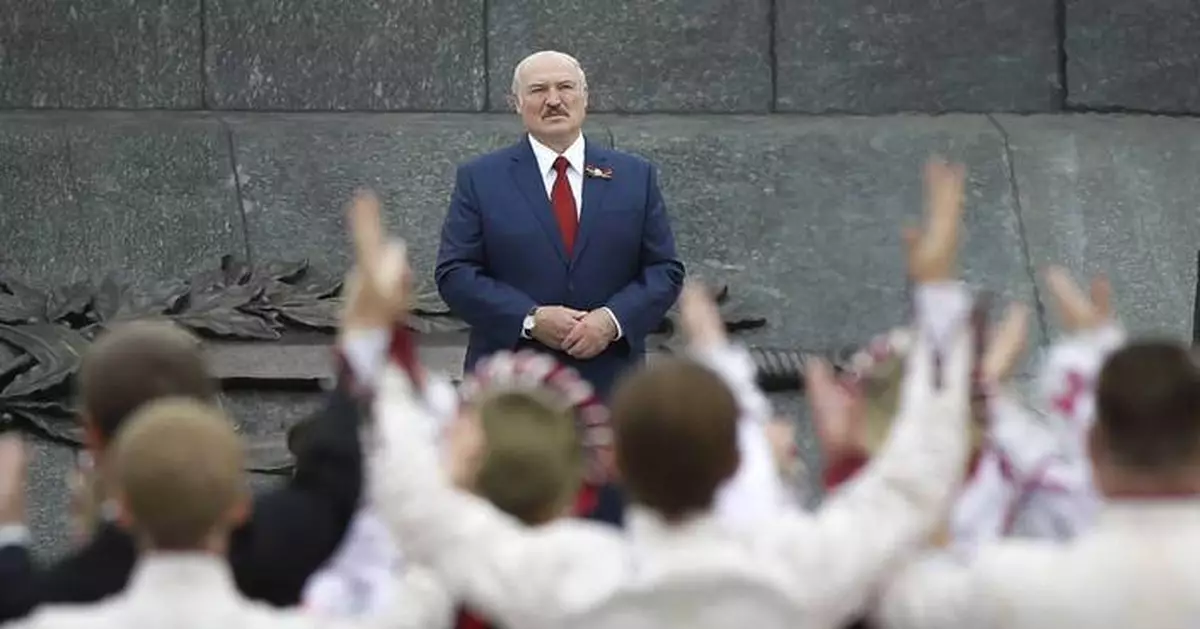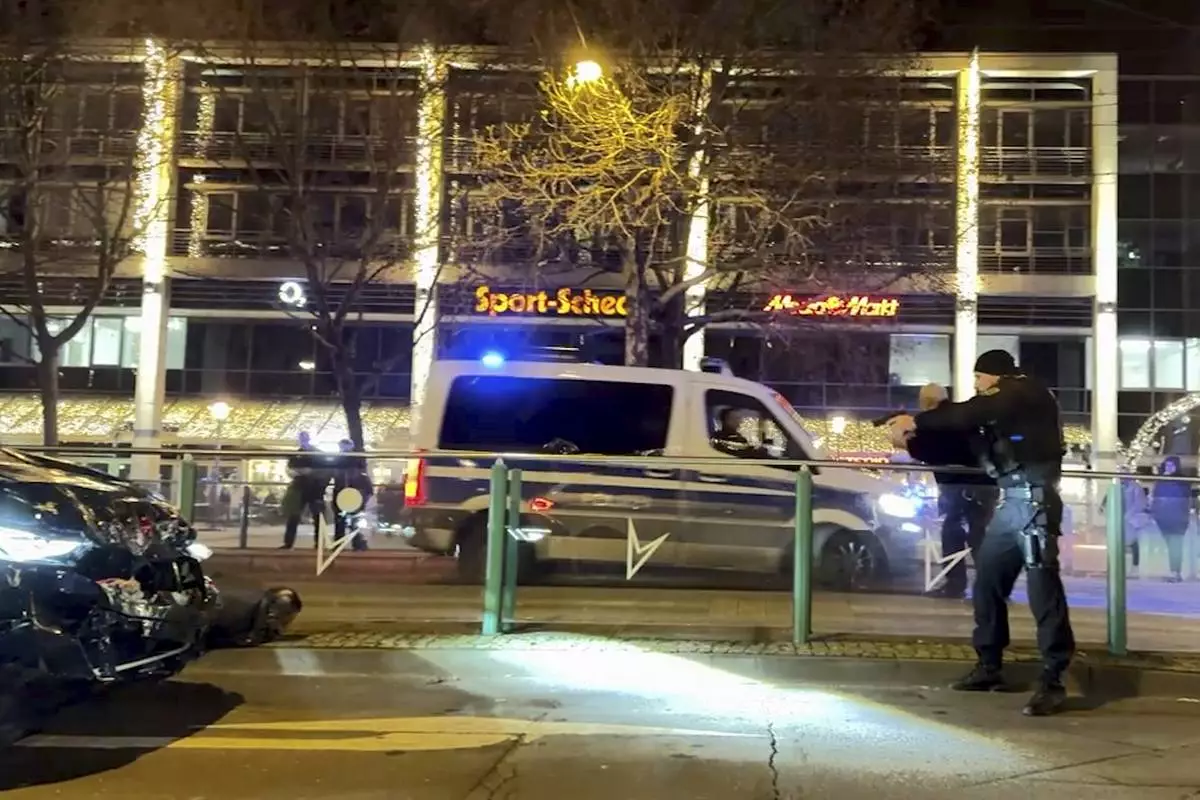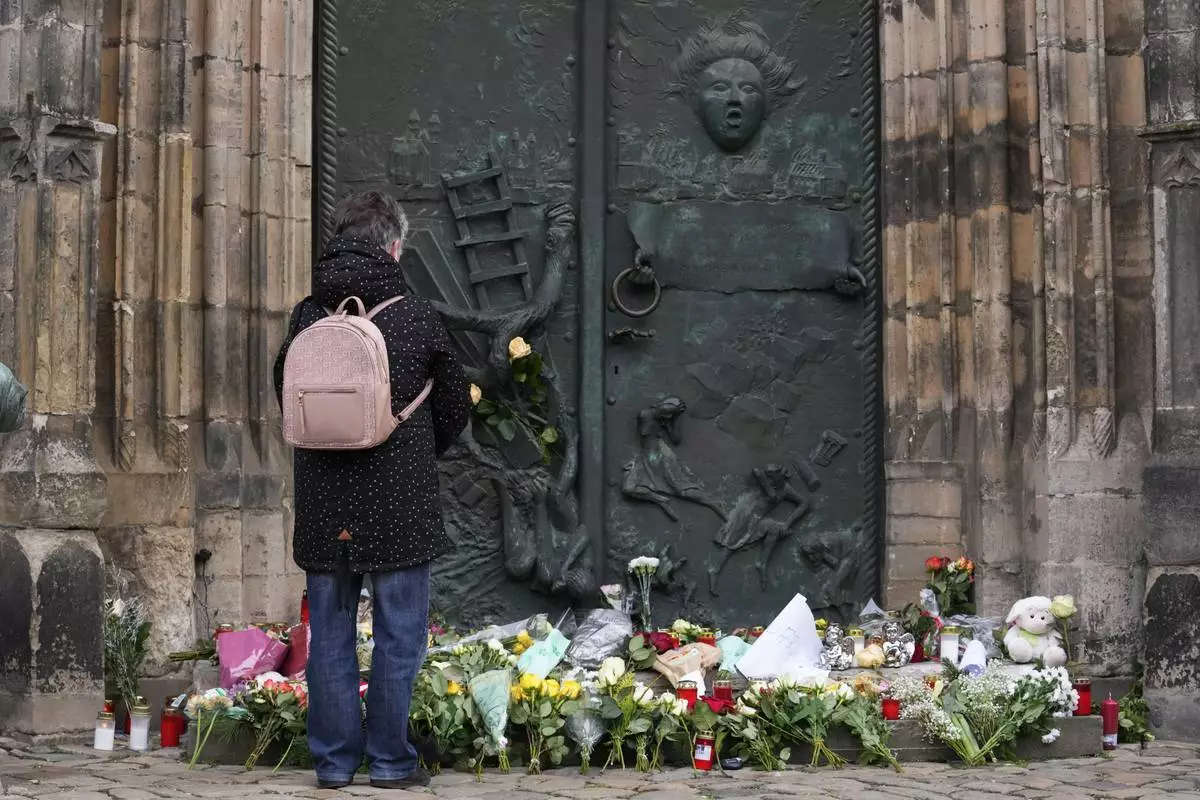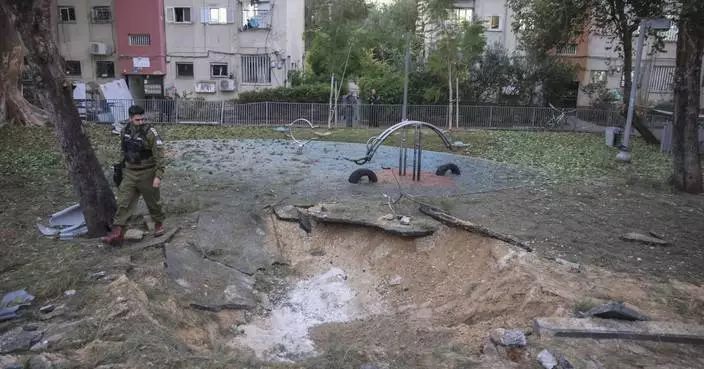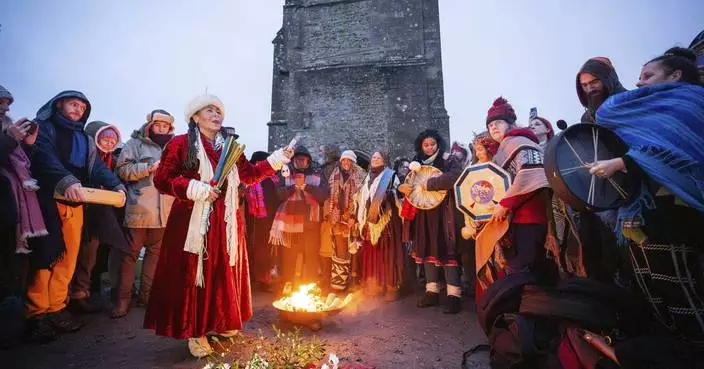TALLINN, Estonia (AP) — When school started this year for Mikalay in Belarus, the 15-year-old discovered that his teachers and administrators no longer called him by that name. Instead, they referred to him as Nikolai, its Russian equivalent.
What's more, classes at his school — one of the country's best — are now taught in Russian, not Belarusian, which he has spoken for most of his life.
Belarusians like Mikalay are experiencing a new wave of Russification as Moscow expands its economic, political and cultural dominance to overtake the identity of its neighbor.
It's not the first time. Russia under the czars and in the era of the Soviet Union imposed its language, symbols and cultural institutions on Belarus. But with the demise of the USSR in 1991, the country began to assert its identity, and Belarusian briefly became the official language, with the white-red-white national flag replacing a version of the red hammer and sickle.
But all that changed in 1994, after Alexander Lukashenko, a former Soviet collective farm official, came to power. The authoritarian leader made Russian an official language, alongside Belarusian, and did away with the nationalist symbols.
Now, with Lukashenko in control of the country for over three decades, he has allowed Russia to dominate all aspects of life in Belarus, a country of 9.5 million people. Belarusian, which like Russian uses the Cyrillic alphabet, is hardly heard on the streets of Minsk and other large cities anymore.
Official business is conducted in Russian, which dominates the majority of the media. Lukashenko speaks only Russian, and government officials often don't use their native tongue.
The country depends on Russian loans and cheap energy and has created a political and military alliance with Moscow, allowing President Vladimir Putin to deploy troops and missiles on its soil, which was used as a staging area for the war in Ukraine.
“I understand that our Belarus is occupied. … And who is the president there? Not Lukashenko. The president is Putin,” said Svetlana Alexievich, who won the 2015 Nobel Prize for literature and lives in Germany in effective exile. “The nation has been humiliated and it will be very difficult for Belarusians to recover from this.”
Belarusian cultural figures have been persecuted and hundreds of its nationalist organizations have been closed. Experts say Moscow is seeking to implement in Belarus what the Kremlin intended to do in neighboring Ukraine when the war there began in 2022.
“It is obvious that our children are being deliberately deprived of their native language, history and Belarusian identity, but parents have been strongly advised not to ask questions about Russification,” said Mikalay’s father, Anatoly, who spoke to The Associated Press on condition his last name not be used, for fear of retribution.
“We were informed about the synchronization of the curriculum with Russia this year and were shown a propaganda film about how the Ukrainian special services are allegedly recruiting our teenagers and forcing them to commit sabotage in Belarus,” he said.
Mikalay's school was one of the few where paperwork and some courses were conducted in Belarusian. In recent years, however, dozens of teachers were fired and the Belarusian-language section of its website vanished.
Human rights advocate Ales Bialiatski, convicted in 2023 on charges stemming from his Nobel Peace Prize-winning work, demanded his trial be conducted in Belarusian. The court rejected it and sentenced him to 10 years.
Lukashenko derides his native language, saying “nothing great can be expressed in Belarusian. … There are only two great languages in the world: Russian and English.”
Speaking to Russian state media, Lukashenko recounted how Putin once thanked him for making Russian the dominant language in Belarus.
“I said, ‘Wait, what are you thanking me for? ... The Russian language is my language, we were part of one empire, and we're taking part in (helping) that language develop,'” Lukashenko said.
Belarus was part of the Russian empire for centuries and became one of 15 Soviet republics after the 1917 Bolshevik Revolution. Daily use of the Belarusian language decreased and continued only in the country's west and north and in rural areas.
In 1994, about 40% of students were taught in Belarusian; it's now down to under 9%.
Although Belarusian, like Russian, is an eastern Slavic language, its vocabulary is considerably different. In 1517, Belarusian publisher Francysk Skaryna was one of the first in eastern Europe to translate the Bible into his native language.
Even speaking Belarusian is seen as a show of opposition to Lukashenko and a declaration of national identity. That played a key role in the mass protests after the disputed 2020 election gave the authoritarian leader a sixth term. In the harsh crackdown that followed, a half-million people fled the country.
“The Belarusian language is increasingly perceived as a sign of political disloyalty and is being abandoned in favor of Russian in the public administration, education, culture and the mass media, upon orders from the hierarchy or out of fear of discrimination,” said Anaïs Marin, the United Nations special rapporteur for human rights in Belarus.
At the same time, “more people want to speak Belarusian, which has become one of the symbols of freedom, but they're afraid to do it in public,” said Alina Nahornaja, author of “Language 404,” a book about Belarusians who experienced discrimination for speaking their native language.
Like Ukraine, Belarusians had a desire for rapprochement with Europe that accompanied their nationalist sentiment, said Belarusian analyst Valery Karbalevich.
“But the Kremlin quickly realized the danger and began the process of creeping Russification in Belarus,” he added.
That prompted pro-Russian organizations, joint educational programs and cultural projects to spring up "like mushrooms after the rain — against the backdrop of harsh repressions against everything Belarusian,” Karbalevich said.
Censorship and bans affect not only contemporary Belarusian literature but also its classics. In 2023, the prosecutor’s office declared as extremist the 19th-century poems of Vincent Dunin-Martsinkyevich, who opposed the Russian Empire.
When the Kremlin began supporting Lukashenko against the anti-government protests in 2020, it ensured his loyalty and received carte blanche in Belarus.
“Today, Lukashenko is paying Putin with our sovereignty,” said exiled opposition leader Sviatlana Tsikhanouskaya. “Belarusian national identity, cultures and language are our strongest weapons against the Russian world and Russification.”
Four cities in Belarus now host a “Russia House” to promote its culture and influence, offering seminars, film clubs, exhibitions and competitions.
“The goal is to plant Russian narratives so that as many Belarusians as possible view Russian as their own,” said analyst Alexander Friedman. “The Kremlin spares no expense and acts on a grand scale, which could be especially effective and dangerous in a situation where Belarus has found itself in information isolation, and there is almost no one left inside the country to resist the Russian world.”
Almost the entire troupe of the Yanka Kupala Theater, the country’s oldest, fled Belarus amid the political crackdown. Its former director, Pavel Latushka, now an opposition figure abroad, said the new management couldn't recruit enough new actors, and had to invite Russians, “but it turned out that no one knew the Belarusian language.”
“Putin published an article denying the existence of an independent Ukraine back in 2021, and even then we understood perfectly well that he was pursuing similar goals in Belarus," Latushka said.
“The main course was supposed to be Ukraine,” he added, with a Russified Belarus "as a dessert.”
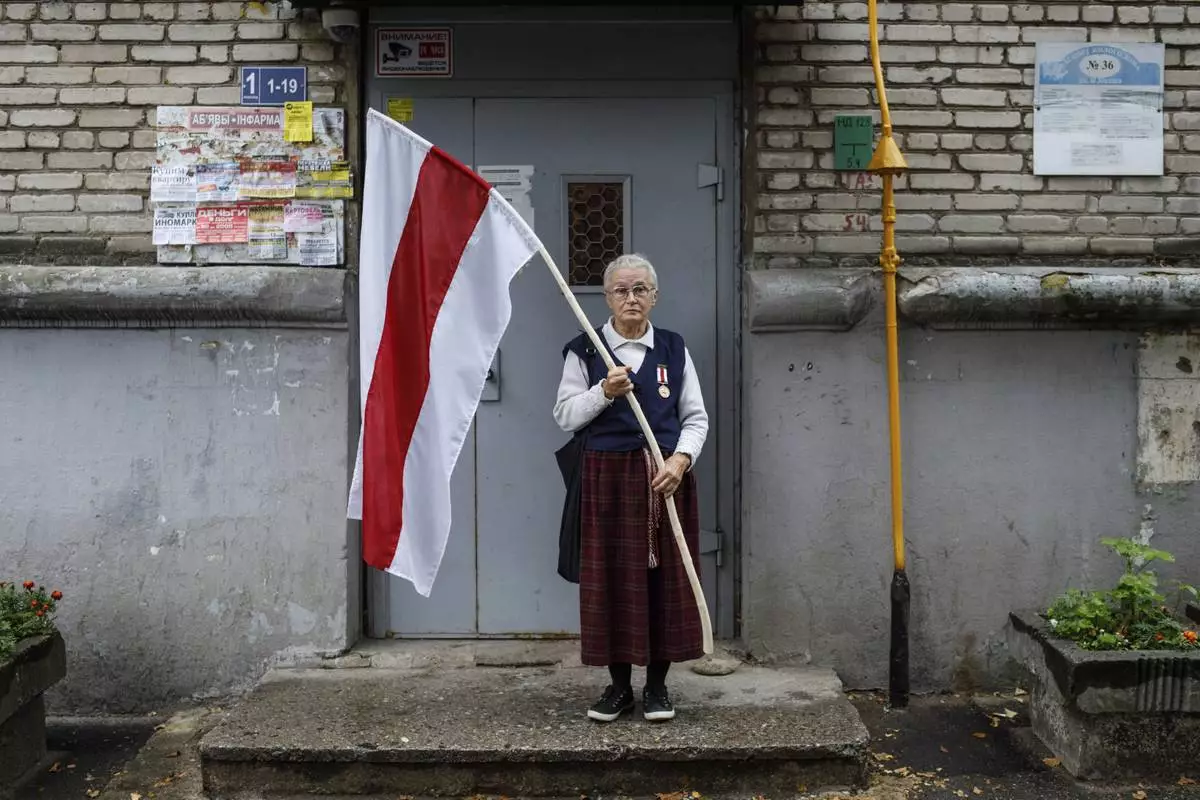
FILE - Nina Bahinskaya, 73, poses for a photo holding a flag that became the symbole of the opposition at an entrance of her apartment building in Minsk, Belarus, on Sept. 10, 2020. (AP Photo, File)
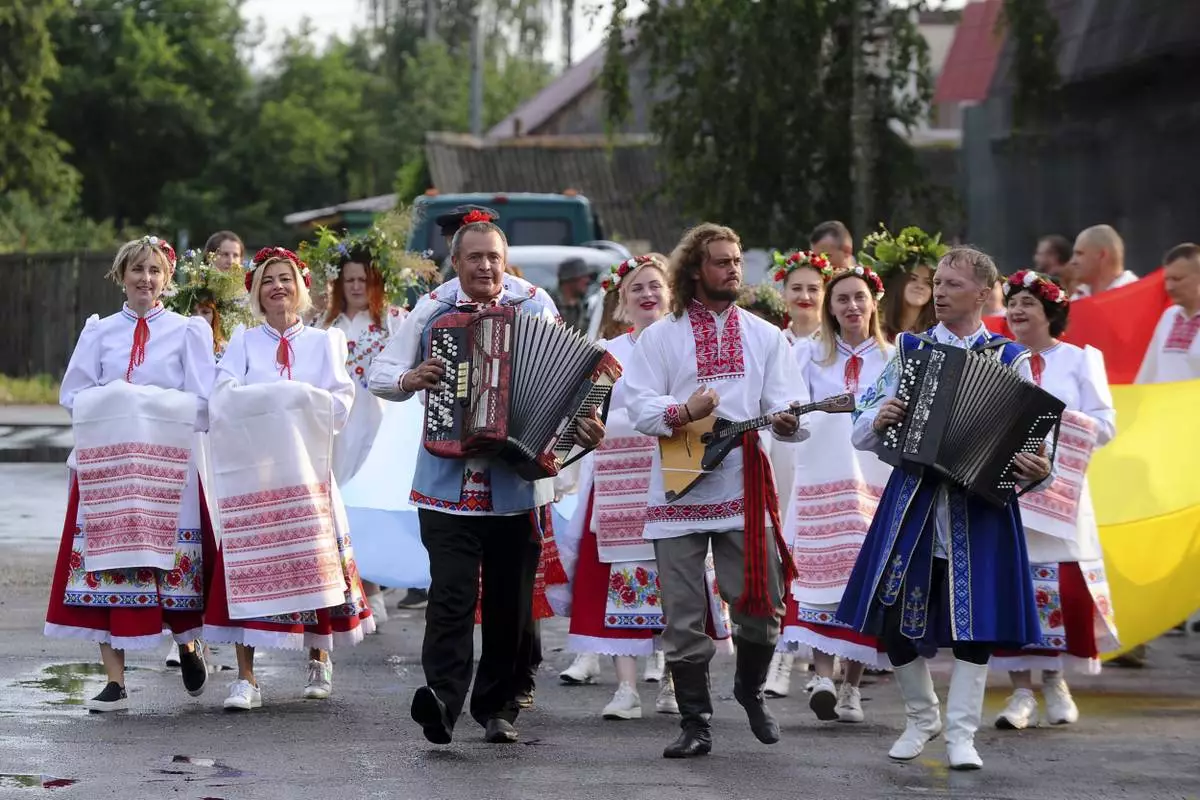
FILE - Belarusians in national costumes walk to the Berezina River in a ritual marking the summer solstice in the village of Parichi, about 200 kilometers (125 miles) southeast of Minsk, Belarus, on July 6, 2022. (AP Photo, File)
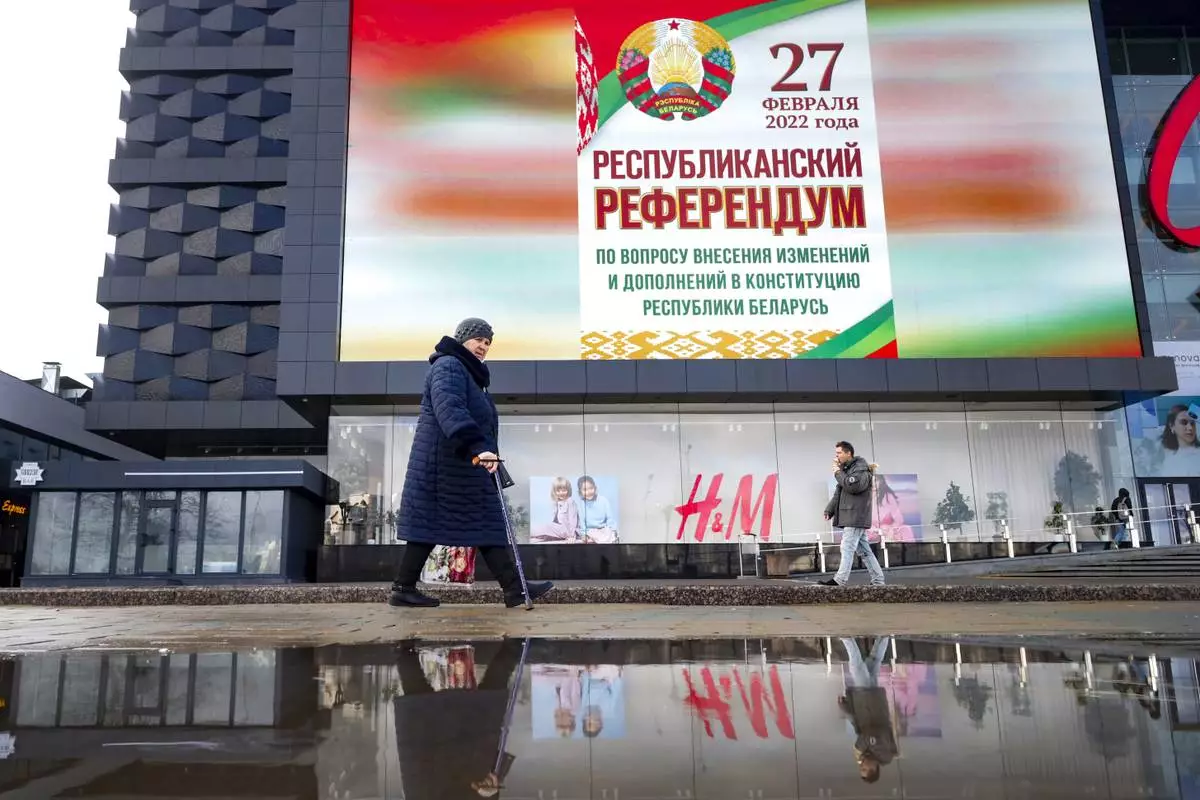
FILE - A woman walks past a poster that reads "Referendum on constitutional amendments" in Minsk, Belarus, on Feb. 18, 2022. (AP Photo, File)
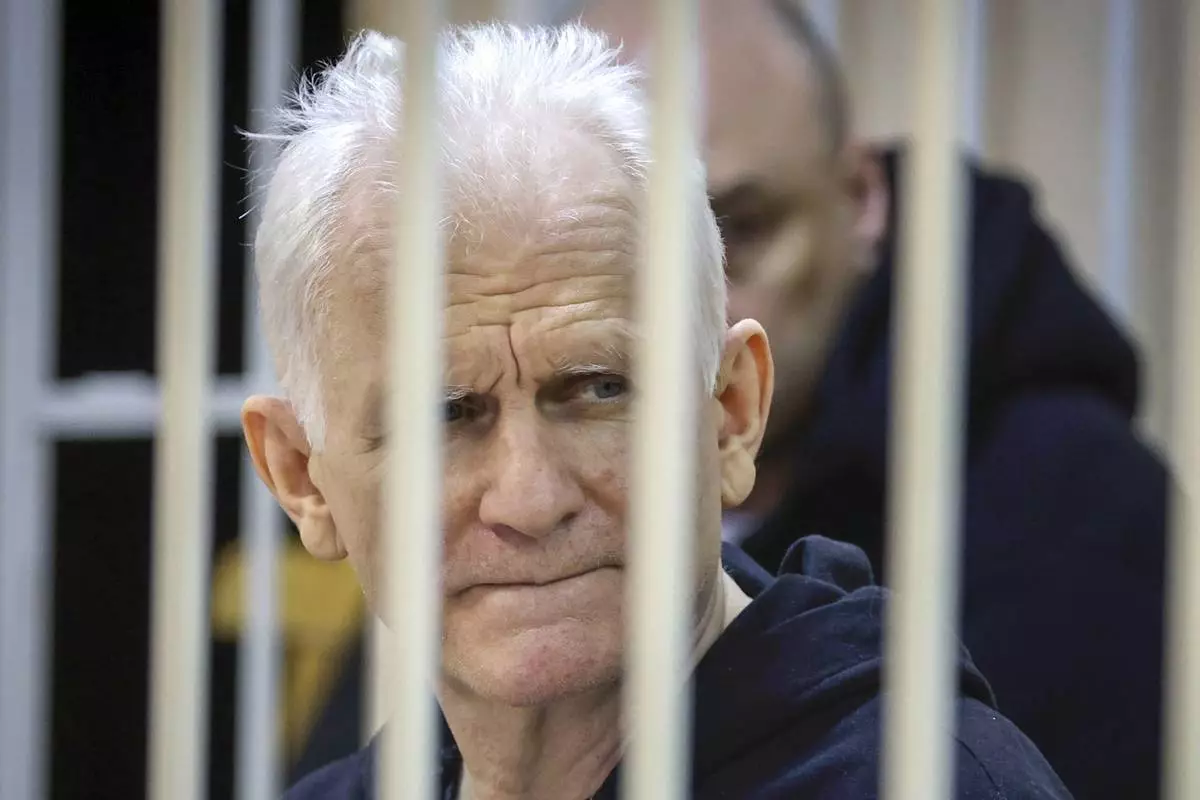
FILE - Ales Bialiatski, the head of the Viasna human rights group, sits in a defendants' cage at a court session in Minsk, Belarus, on Jan. 5, 2023. (Vitaly Pivovarchyk/BelTA Pool Photo via AP, File)
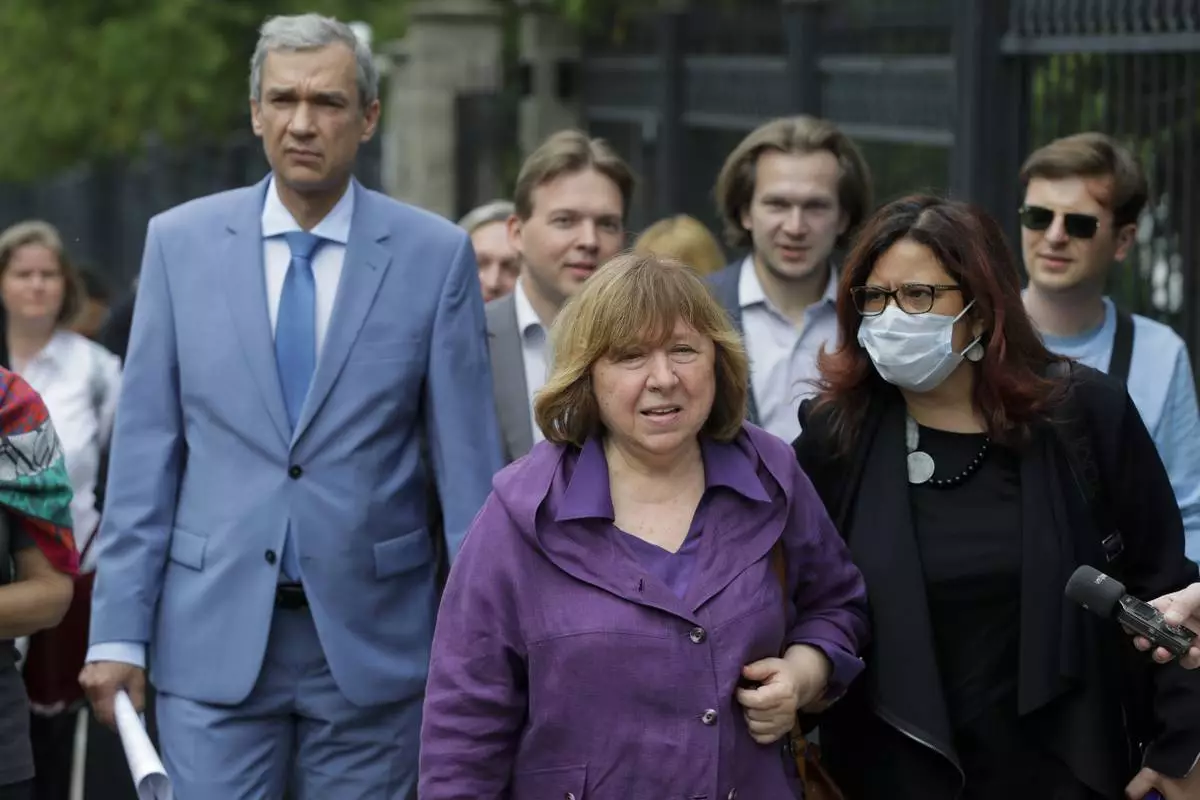
FILE - Svetlana Alexievich, the 2015 Nobel literature laureate, center, and Pavel Latushko, former culture minister and ambassador to France, left, walk amid supporters and journalists on their way to the office of the Belarusian Investigative Committee in Minsk, Belarus, on Aug. 26, 2020. (AP Photo, File)
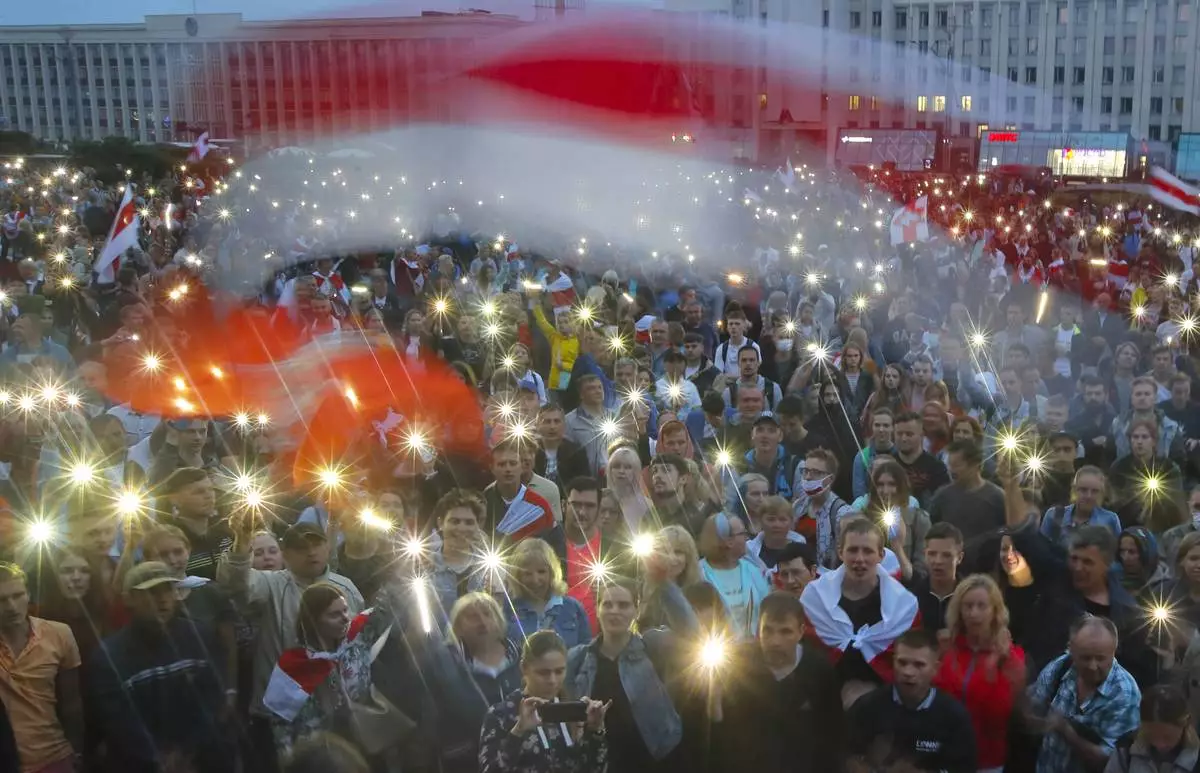
FILE - Protesters shine the lights on their phones and wave red-and-white flags that became symbols of the opposition during an anti-government demonstration in Independence Square in Minsk, Belarus, on Aug. 19, 2020. (AP Photo, File)
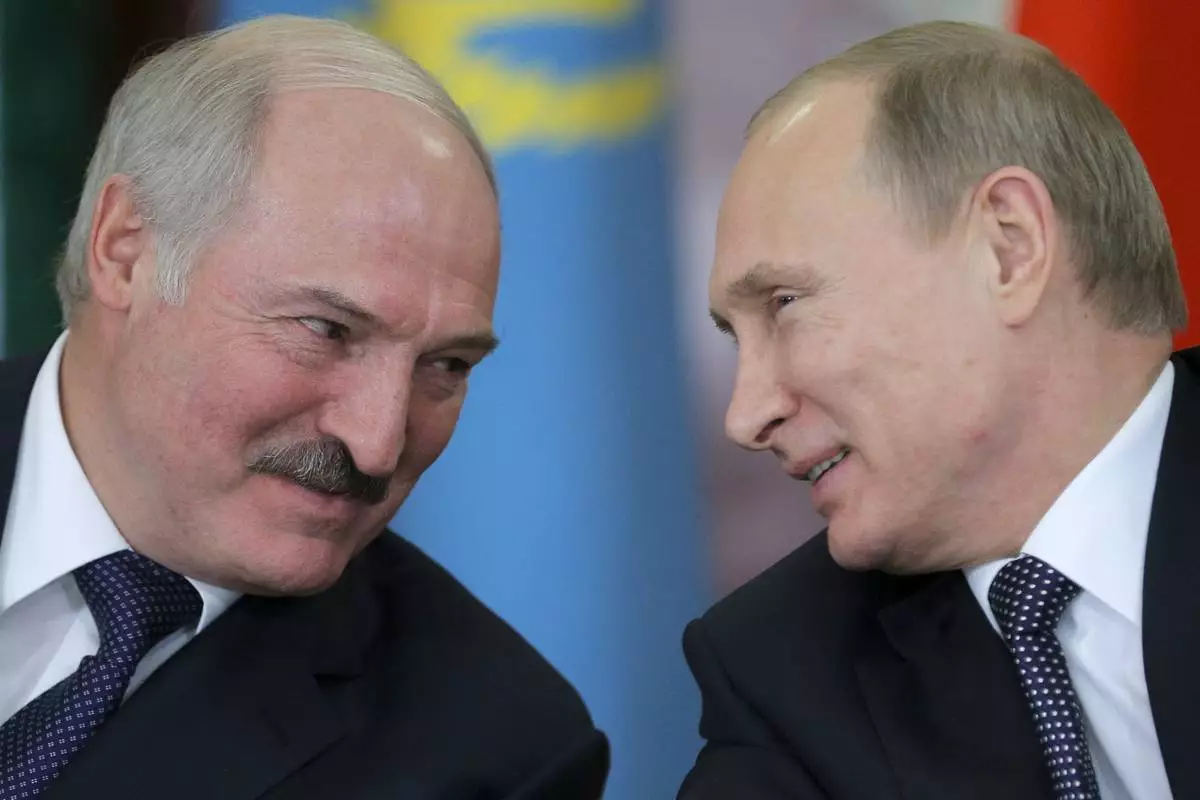
FILE - Russian President Vladimir Putin, right, and his Belarus counterpart, Alexander Lukashenko, talk at an economic summit in the Kremlin, in Moscow, Russia, on Dec. 23, 2014. (AP Photo/ Maxim Shipenkov, Pool, File)
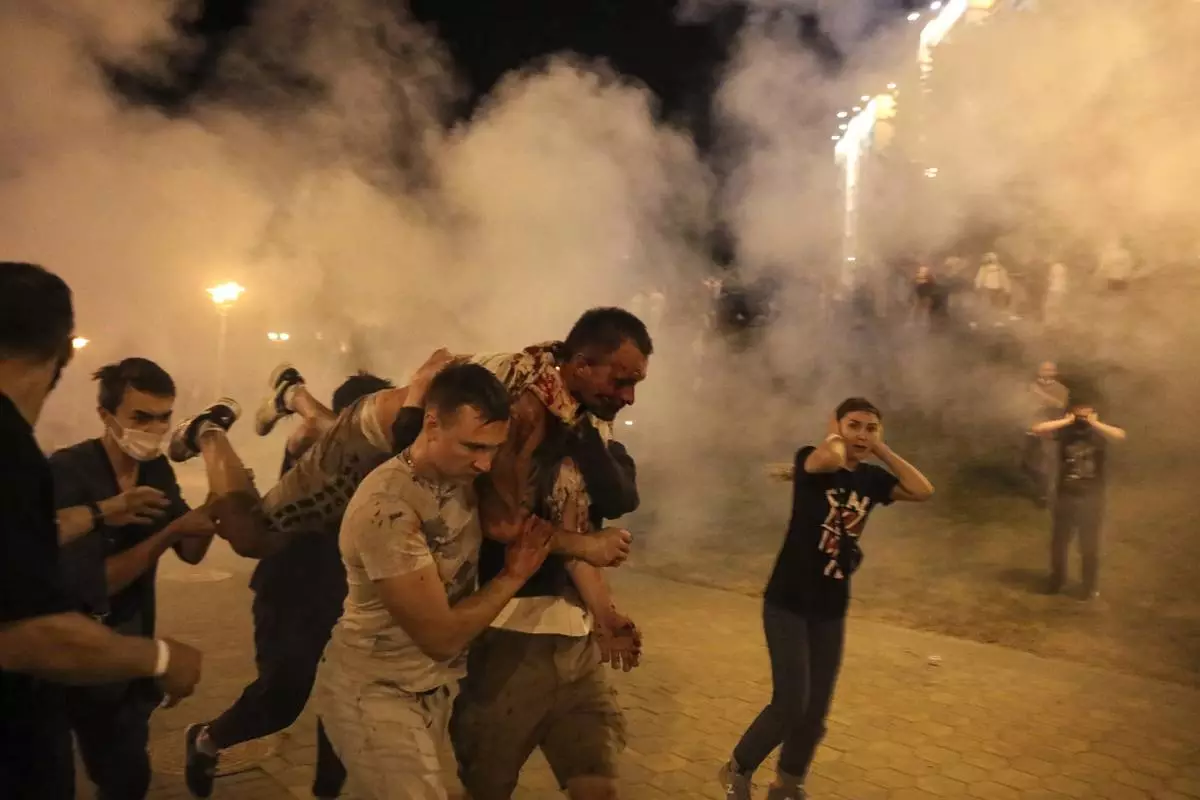
FILE - Protesters carry a man injured during clashes with police amid demonstrations in Minsk, Belarus, on Aug. 10, 2020. (AP Photo, File)
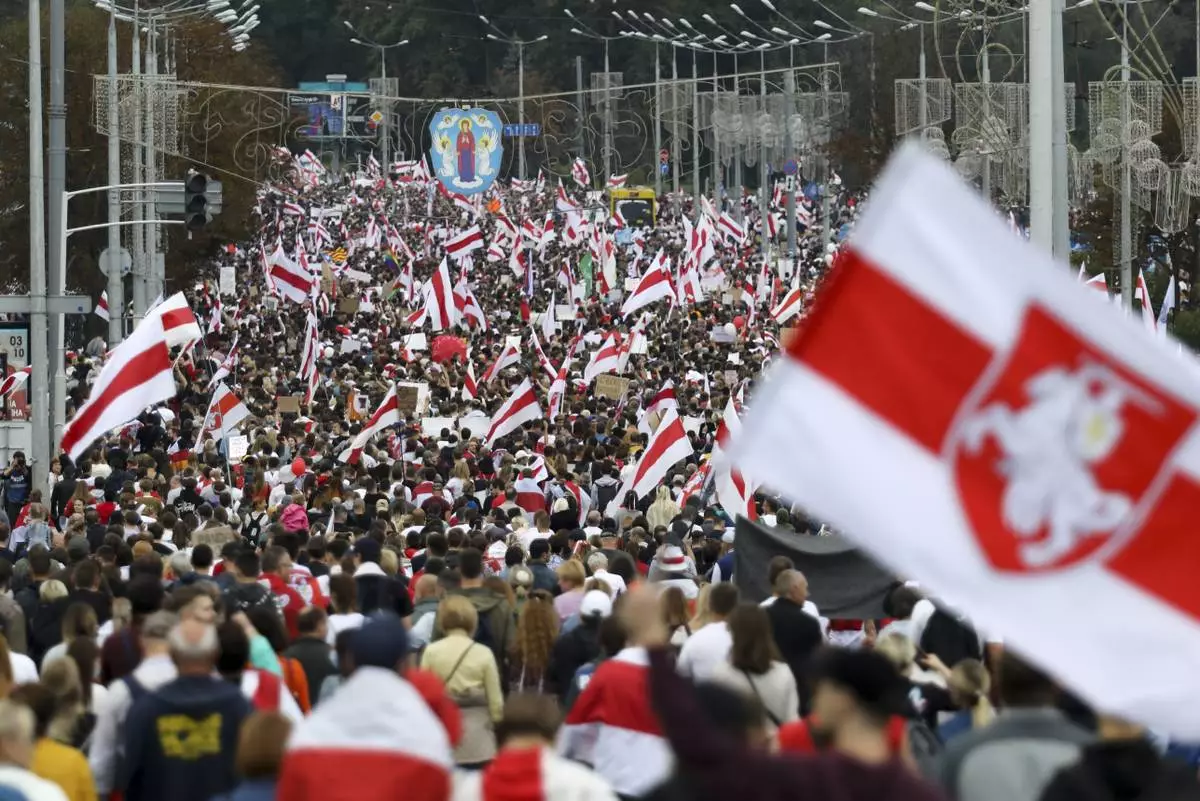
FILE - Protesters with old Belarusian national flags march at an opposition rally in Minsk, Belarus, on Sept. 6, 2020. (AP Photo, File)
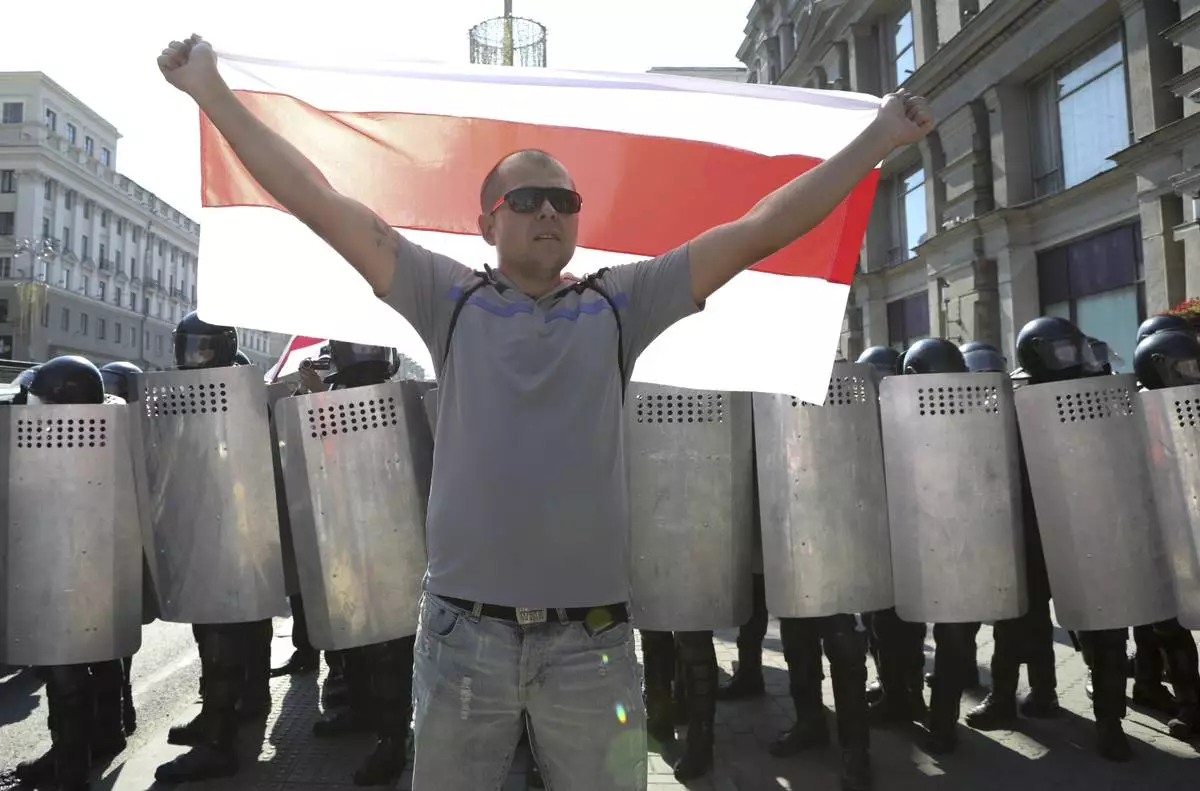
FILE – A protester holds a red-and-white flag that was a symbol of the opposition in front of a police line during an anti-government demonstration in Minsk, Belarus, on Aug. 30, 2020.(AP Photo, File)
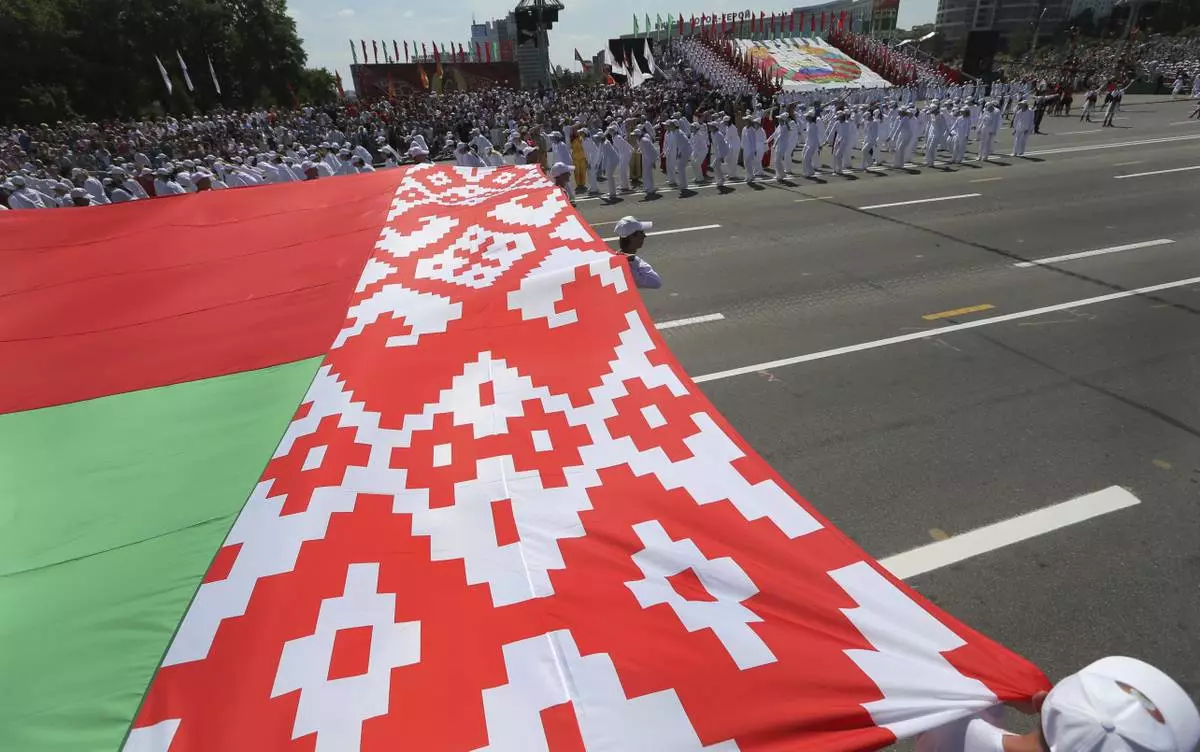
FILE - Belarusian athletes carry the country’s flag during celebrations marking Independence Day in Minsk, Belarus, on July 3, 2013. (AP Photo, File)
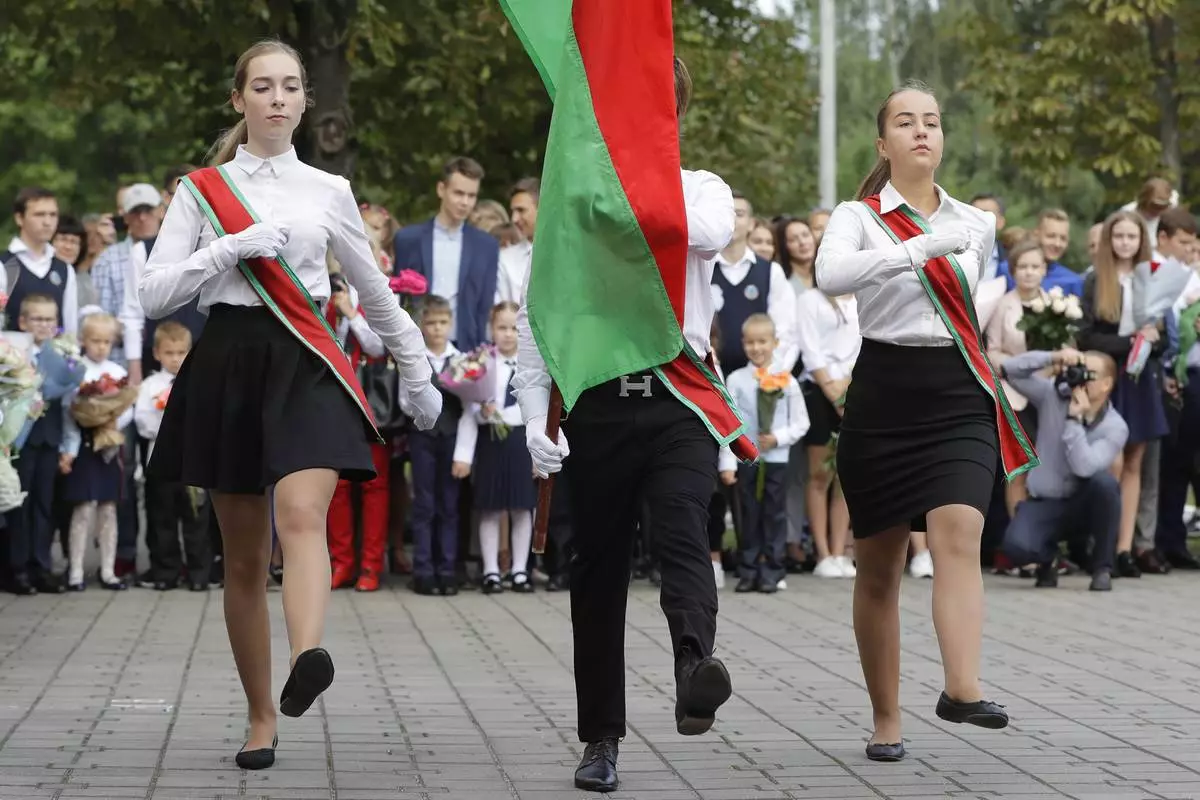
FILE - Schoolchildren march during the traditional opening of the school year, known as the Day of Knowledge, in Minsk, Belarus, on Sept. 1, 2018. (AP Photo, File)
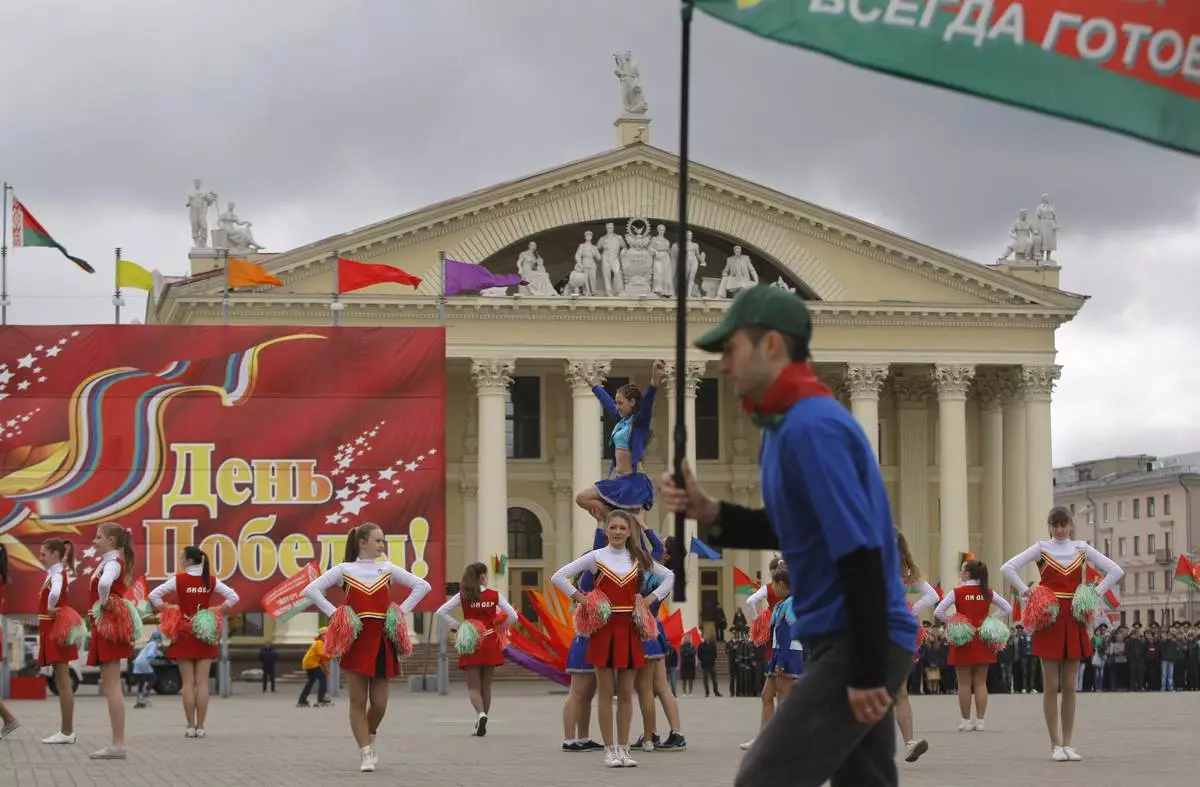
FILE - Schoolchildren perform at a ceremony marking Belarus’ holiday honoring the state flag and emblem in Minsk, Belarus, on May 13, 2012. (AP Photo, File)
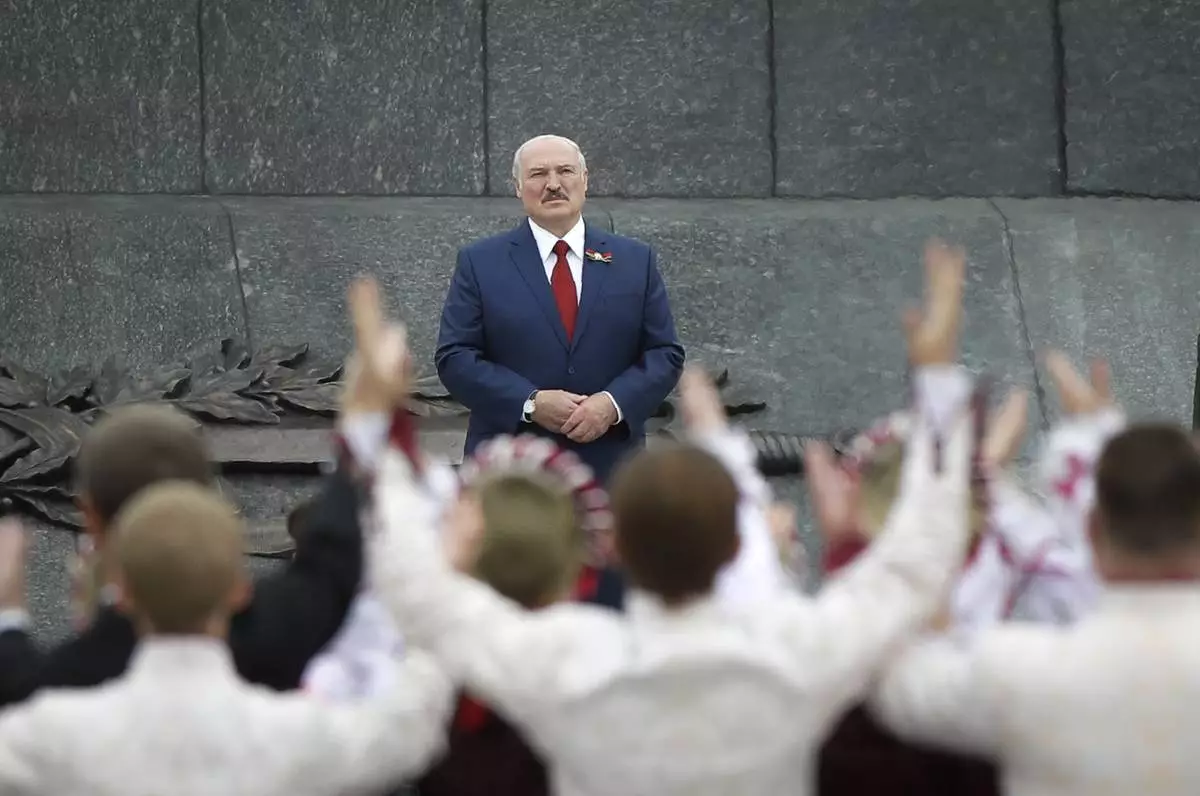
FILE - Belarus President Alexander Lukashenko speaks to schoolchildren at Independence Day celebrations in Minsk, Belarus, on July 3, 2020. (AP Photo, File)


